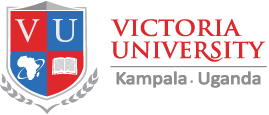Quick Facts
Credential
Master's Degree
Delivery Options:
Both On-Campus and Online - Some of your Classes will be in-person, on campus and some will be done online.
Duration: Full-time: 2 years
With a typical full-time course load, this programme will take Full-time: 2 years to complete.
Language of instruction
english
Admission Requirements
To be considered for admission to the programme, you must satisfy the general requirements for admission to Victoria University and meet one of the following criteria:
Hold a minimum of second-class honours undergraduate degree that has content rich in Information Technology, Information systems, computer science, software engineering or mathematics.
Hold a postgraduate diploma in Information Technology, Information Systems, Computer Science, Software Engineering and Computer Engineering from a recognized University/ Institution.
Have any other relevant degree from a recognized university/institution with evidence of having taken a considerable number of acceptable courses related to the Information Technology or Information Systems discipline.
Applicants whose first language is not English will be required to demonstrate a proficiency in the English language by passing an English proficiency Test conducted by the University.
Admission Requirements Postgraduate Students (Ugandans)
· Bachelor’s Degree transcript
· Diploma transcript if applicable
· Certificate if applicable
· UACE result slip
· UCE result slip
· National ID/passport/ birth certificate
· Two Passport Photos
· Admission fee receipt UGX 250,000
Admission Requirements Postgraduate students (Non-Ugandans)
· Bachelor’s transcript
· Diploma transcript if applicable from NCHE
· Certificate if applicable from NCHE
· Secondary certificate from UNEB
· National ID/passport/ birth certificate
· Two passport photos
· Admission fees Receipt $78
What you will Learn
When you successfully completes the course you will have achieved the following Course Learning Outcomes:
You will have Increased advanced human resource capacity in the Information Technology discipline in both public and private sectors.
You will have improved theoretical and practical skills for the Information Technology sector among graduates.
You will have Enhanced competencies in technology innovations in the various sectors such as health, education, agriculture and government.
You will have increased multi-disciplinary collaborations and partnerships.
Increased number of MSc in Information Technology graduates
Career Opportunities
The Master of Science in Information Technology (MSIT) is a graduate degree program that prepares students for a wide range of career opportunities in the field of information technology. Some of the career opportunities for MSIT graduates include:
Information Security Analyst: An information security analyst is responsible for ensuring the security of an organization's computer systems and networks. They develop and implement security policies and procedures, monitor systems for security breaches, and investigate security incidents.
Database Administrator: A database administrator is responsible for the performance, security, and maintenance of an organization's databases. They ensure that data is stored and managed effectively and that databases are backed up and secured against unauthorized access.
Network Architect: A network architect is responsible for designing and implementing computer networks for organizations. They evaluate network performance, identify potential issues, and develop solutions to ensure that networks are reliable and efficient.
Software Developer: A software developer designs, develops, and maintains software applications for organizations. They work with programming languages and software development tools to create applications that meet the needs of their clients.
Systems Administrator: A systems administrator is responsible for the maintenance and operation of an organization's computer systems. They ensure that systems are updated and maintained, troubleshoot problems, and provide technical support to users.
Data Scientist: A data scientist is responsible for analyzing and interpreting large amounts of data to help organizations make informed decisions. They use statistical analysis and machine learning techniques to identify trends and patterns in data.
IT Manager: An IT manager is responsible for overseeing the technology infrastructure of an organization. They manage IT staff, develop technology policies and procedures, and ensure that technology projects are completed on time and within budget.
These are just a few examples of the career opportunities available to MSIT graduates. The field of information technology is constantly evolving, and new career opportunities are emerging all the time. With an MSIT degree, graduates have the knowledge and skills they need to pursue a variety of exciting and rewarding careers in this field.
Tuition & Fees
The tuition and fee amounts are estimates based on current academic year's rates. For financial planning purposes, please use these totals as an approximate estimate of your costs. Actual fees may vary by term and enrolment activities.
Download
